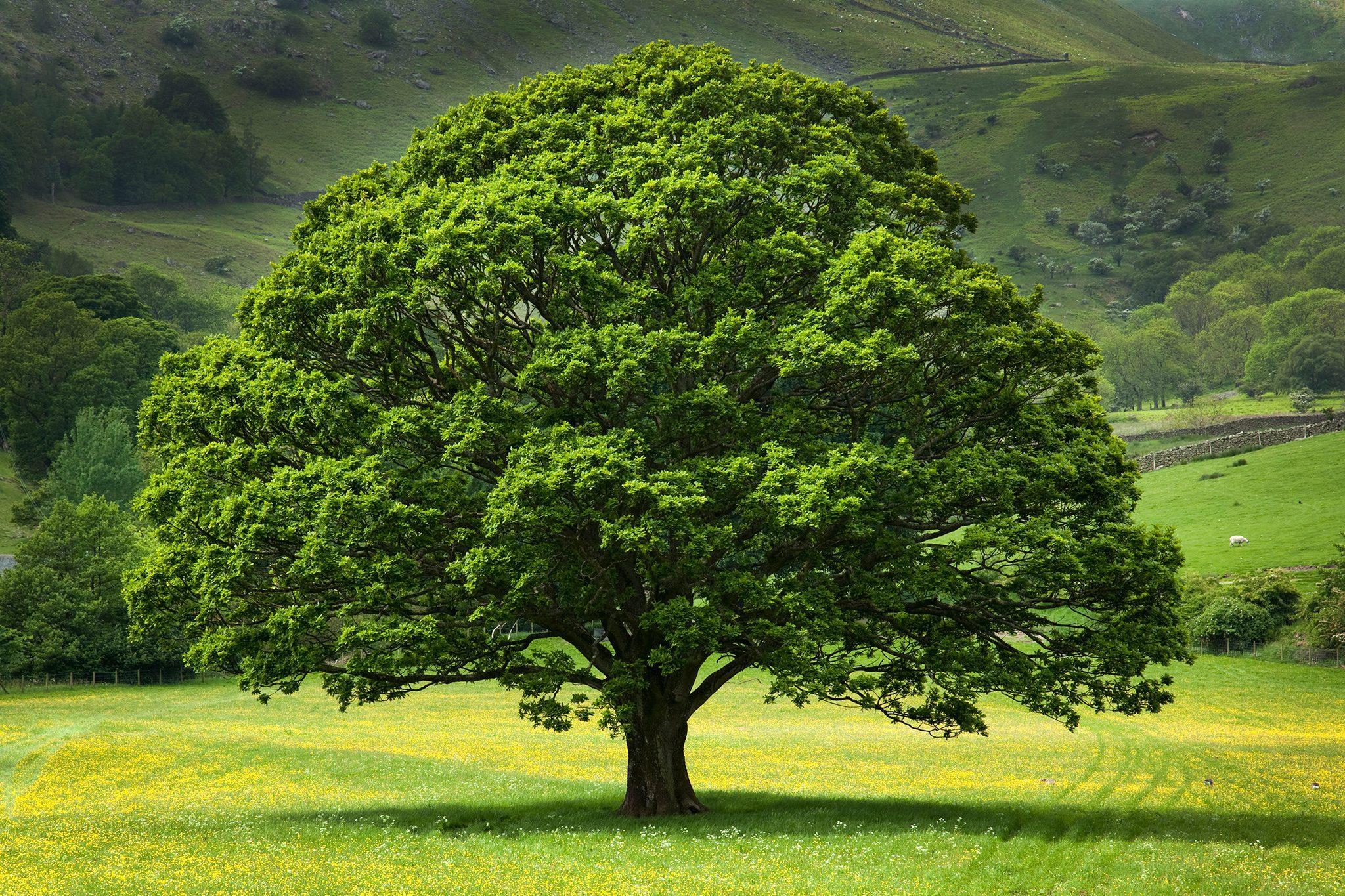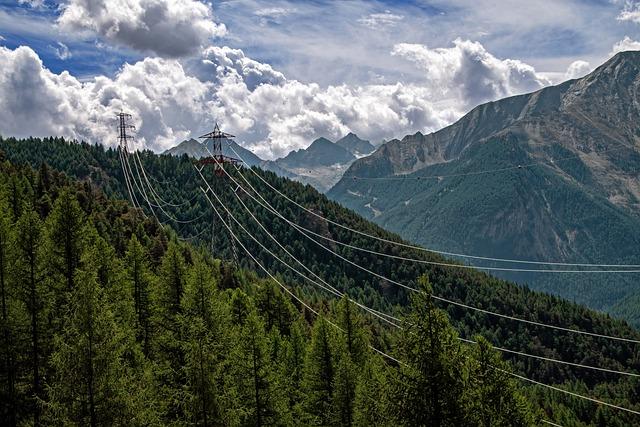Trees play a crucial role in providing a wide range of ecosystem services that are essential to supporting life on Earth. From providing oxygen to regulating climate, trees have a significant impact on the environment and the well-being of all living organisms. In this article, we will explore the various roles that trees play in ecosystem services and the importance of preserving and protecting our forests for a sustainable future.
Table of Contents
- – Importance of Trees in Carbon Sequestration
- – Biodiversity Support Provided by Trees
- – Contribution of Trees to Soil Health
- - Economic Benefits of Trees in Ecosystem Services
- Q&A
- Conclusion
– Importance of Trees in Carbon Sequestration
Trees play a crucial role in the process of carbon sequestration, which is essential for mitigating climate change. Through photosynthesis, trees absorb carbon dioxide from the atmosphere and store it as carbon in their biomass and soil. This process helps to reduce the concentration of greenhouse gases in the atmosphere, ultimately slowing down the rate of global warming.
Aside from their contribution to carbon sequestration, trees provide a wide range of ecosystem services that are vital for environmental sustainability. Some of these services include:
- Improving air quality by filtering pollutants
- Regulating local climate by providing shade and releasing moisture
- Supporting biodiversity by providing habitats for various species
- Preventing soil erosion through their root systems
– Biodiversity Support Provided by Trees
Trees play a crucial role in supporting biodiversity within ecosystems. They provide habitat, food, and protection for a wide variety of plant and animal species.
Some ways in which trees support biodiversity include:
- Providing shelter and nesting sites for birds, insects, and mammals
- Offering food sources in the form of fruits, nuts, and nectar
- Creating microhabitats within their branches and trunks for specialized species to thrive
| Benefit | Example |
| Shelter | Birds building nests in tree canopies |
| Food | Squirrels feeding on acorns from oak trees |
By supporting biodiversity, trees contribute to the overall health and resilience of ecosystems. It is important to recognize and protect the valuable role that trees play in providing essential ecosystem services.
– Contribution of Trees to Soil Health
Trees play a crucial role in enhancing soil health through various mechanisms. They contribute to the overall ecosystem services by providing numerous benefits to the soil, which in turn support the growth and vitality of other organisms within the ecosystem. Some of the key contributions of trees to soil health include:
- Improved Soil Structure: Tree roots help in improving soil structure by binding soil particles together, thus reducing erosion and improving water infiltration.
- Nutrient Cycling: Trees play a vital role in nutrient cycling by absorbing nutrients from the soil and releasing them back through leaf litter decomposition, benefiting other plants and organisms in the ecosystem.
- Microbial Diversity: Tree roots create a favorable environment for beneficial soil microorganisms, such as mycorrhizal fungi, which contribute to nutrient uptake, disease resistance, and overall soil health.
| Benefits of Trees to Soil Health |
|---|
| Improved soil structure |
| Nutrient cycling |
| Enhanced microbial diversity |
Overall, trees play a significant role in promoting soil health and supporting the sustainability of ecosystems. By understanding and appreciating the contribution of trees to soil health, we can better conserve and protect these valuable resources for future generations.
– Economic Benefits of Trees in Ecosystem Services
Trees play a crucial role in providing various ecosystem services, including economic benefits that contribute to the well-being of society. One of the main economic benefits of trees is their ability to improve property values in urban areas. Properties with mature trees are often valued higher than those without, as trees enhance the aesthetic appeal of neighborhoods and provide shade, reducing energy costs for cooling in the summer.
Furthermore, trees also offer opportunities for economic growth through industries such as forestry, timber production, and ecotourism. The timber industry relies heavily on trees for wood products, while ecotourism benefits from the natural beauty and biodiversity that trees provide in forests and parks. Additionally, trees help mitigate climate change by sequestering carbon dioxide, which can lead to financial incentives through carbon offset programs.
Q&A
Q: What are ecosystem services and why are they important?
A: Ecosystem services are the benefits that humans receive from nature, such as clean air, clean water, and pollination. They are crucial for our well-being and survival.
Q: What role do trees play in providing ecosystem services?
A: Trees play a crucial role in providing ecosystem services. They help regulate the climate, clean the air, provide habitat for wildlife, and much more.
Q: How do trees help regulate the climate?
A: Trees help regulate the climate by absorbing carbon dioxide from the atmosphere and storing it in their wood and leaves. They also release oxygen through the process of photosynthesis.
Q: How do trees help clean the air?
A: Trees help clean the air by absorbing pollutants and particulate matter from the atmosphere through their leaves and bark. They also release oxygen, which is essential for human and animal life.
Q: What other ecosystem services do trees provide?
A: Trees provide a wide range of ecosystem services, including preventing soil erosion, stabilizing water cycles, and providing habitats for wildlife. They also contribute to the aesthetic beauty of landscapes and provide recreational opportunities for humans.
Q: How can we ensure the continued provision of ecosystem services by trees?
A: We can ensure the continued provision of ecosystem services by trees through sustainable forest management, reforestation efforts, and conservation of natural habitats. It is important to recognize the value of trees and their role in supporting human well-being.
Conclusion
In conclusion, trees play a critical role in providing essential ecosystem services that benefit both the environment and society. From regulating climate and maintaining water cycles to providing habitats for wildlife and improving air quality, trees are indispensable to the health and sustainability of our planet. It is important for us to recognize the value of trees and prioritize their conservation and restoration efforts to ensure a thriving and balanced ecosystem for future generations. Let us continue to protect and cherish these invaluable natural resources for the well-being of all living beings. Thank you for exploring the significant role of trees in ecosystem services with us.
Simpsons Tree Services, Servicing Melbourne’s North Eastern Suburbs
Book a quote online at www.simpsonstrees.com.au




